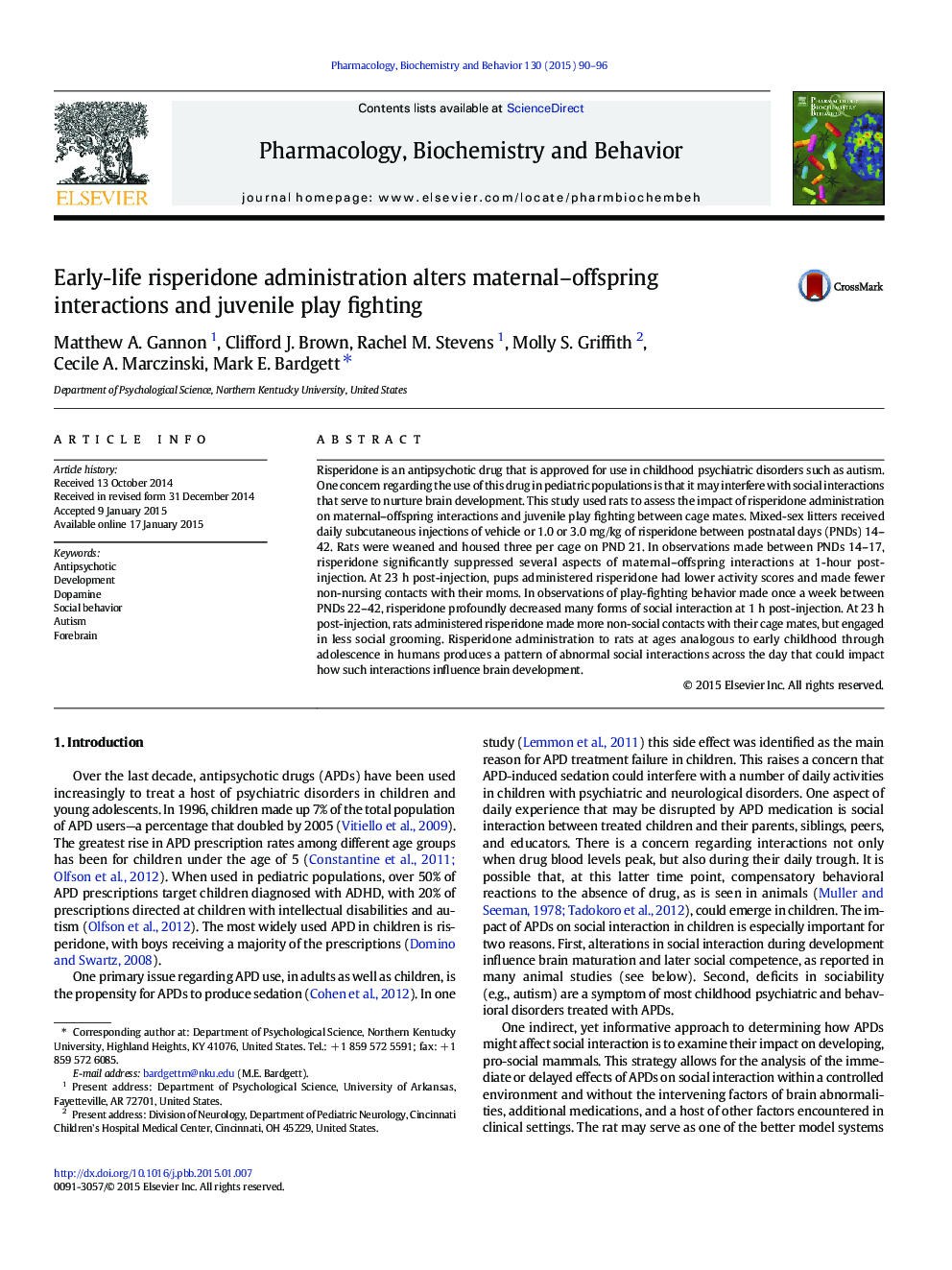| Article ID | Journal | Published Year | Pages | File Type |
|---|---|---|---|---|
| 8350778 | Pharmacology Biochemistry and Behavior | 2015 | 7 Pages |
Abstract
Risperidone is an antipsychotic drug that is approved for use in childhood psychiatric disorders such as autism. One concern regarding the use of this drug in pediatric populations is that it may interfere with social interactions that serve to nurture brain development. This study used rats to assess the impact of risperidone administration on maternal-offspring interactions and juvenile play fighting between cage mates. Mixed-sex litters received daily subcutaneous injections of vehicle or 1.0 or 3.0Â mg/kg of risperidone between postnatal days (PNDs) 14-42. Rats were weaned and housed three per cage on PND 21. In observations made between PNDs 14-17, risperidone significantly suppressed several aspects of maternal-offspring interactions at 1-hour post-injection. At 23Â h post-injection, pups administered risperidone had lower activity scores and made fewer non-nursing contacts with their moms. In observations of play-fighting behavior made once a week between PNDs 22-42, risperidone profoundly decreased many forms of social interaction at 1Â h post-injection. At 23Â h post-injection, rats administered risperidone made more non-social contacts with their cage mates, but engaged in less social grooming. Risperidone administration to rats at ages analogous to early childhood through adolescence in humans produces a pattern of abnormal social interactions across the day that could impact how such interactions influence brain development.
Related Topics
Life Sciences
Biochemistry, Genetics and Molecular Biology
Biochemistry
Authors
Matthew A. Gannon, Clifford J. Brown, Rachel M. Stevens, Molly S. Griffith, Cecile A. Marczinski, Mark E. Bardgett,
